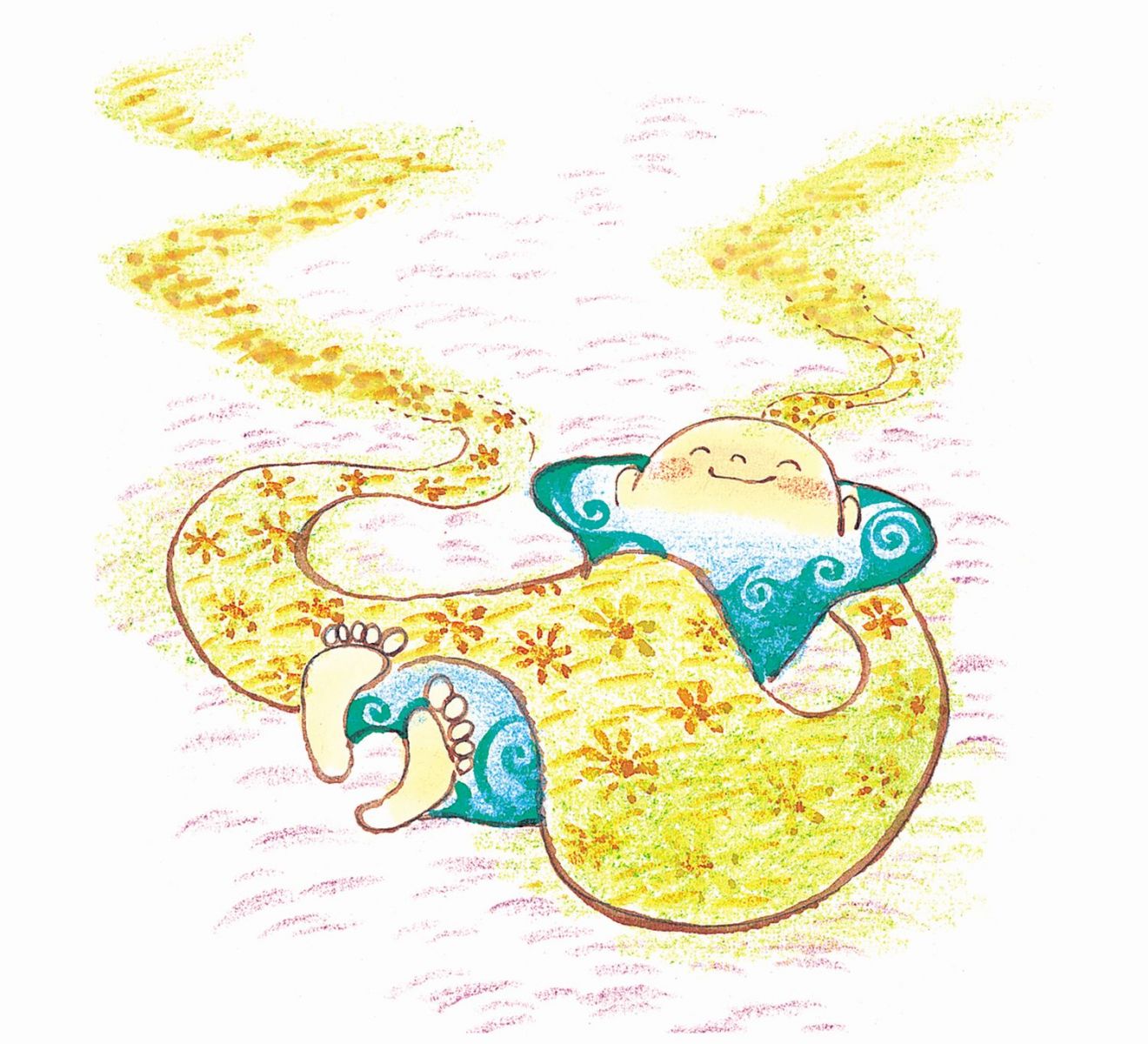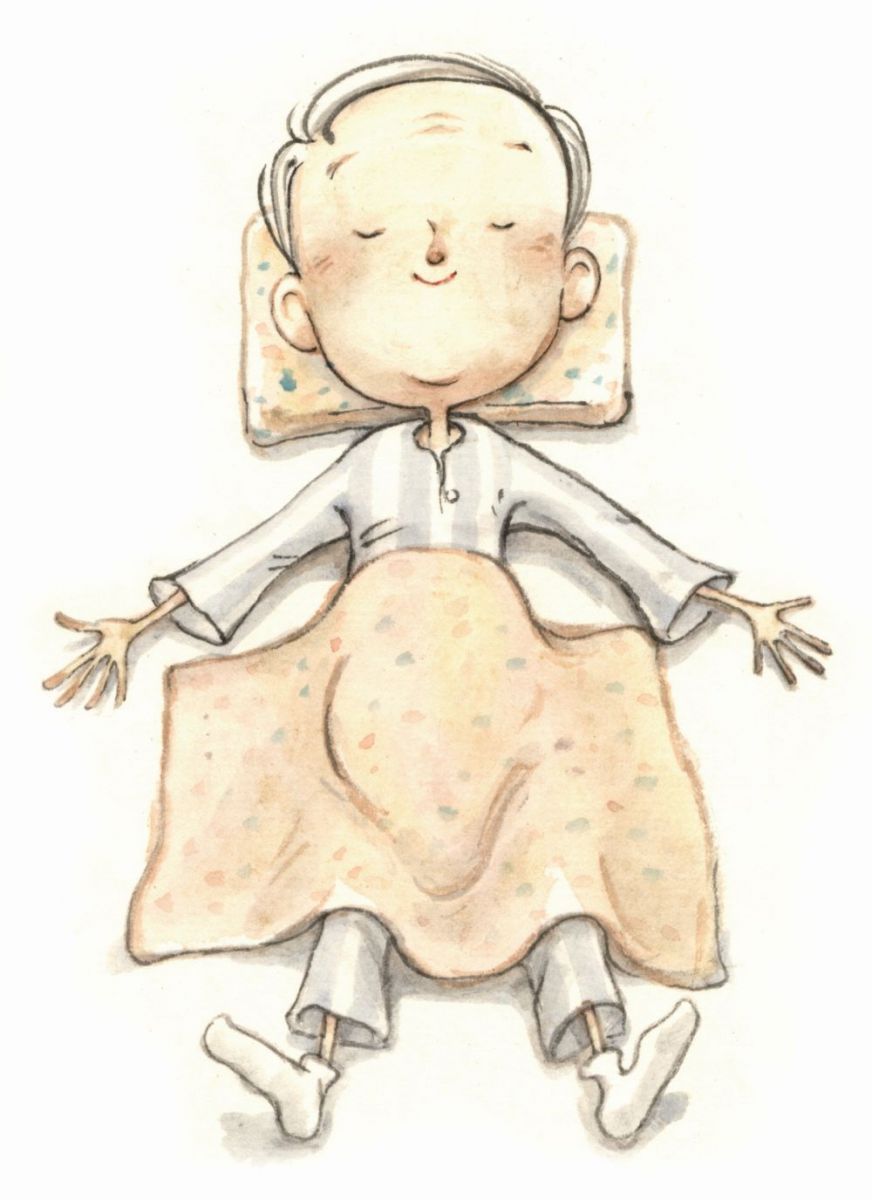Special Topics
Sleep is for Rest and Practice
Eating and sleeping are natural, but do we know how to sleep properly?A good night's sleep is like a lesson for relaxing our body and mind,
Only when our mind is relaxed will our body feel relaxed.
Develop good sleep habits, and maintain right mindfulness and awareness,
and we will experience lightness and calmness, with an awakened mind.
Not wanting to sleep when it's time to sleep
 As a Chan master once remarked, "Eat when feeling hungry; go to sleep when feeling sleepy." Although sleeping is originally intended to be a very simple, relaxing and enjoyable experience, modern people often have trouble sleeping at night due to their daily schedules, environmental changes, stress, and illness, among other factors. "There are many reasons for insomnia, but in summary, many habits or concepts developed to cope with insomnia are probably one of the main reasons that affect our sleep." Wu Jiashuo, a clinical psychologist at the Sleep Center of Chang Gung Hospital, observed that many people have the habit of reading or listening to music in bed to help themselves become drowsier, when in fact it is actually telling their brains and bodies to stay awake in bed.
As a Chan master once remarked, "Eat when feeling hungry; go to sleep when feeling sleepy." Although sleeping is originally intended to be a very simple, relaxing and enjoyable experience, modern people often have trouble sleeping at night due to their daily schedules, environmental changes, stress, and illness, among other factors. "There are many reasons for insomnia, but in summary, many habits or concepts developed to cope with insomnia are probably one of the main reasons that affect our sleep." Wu Jiashuo, a clinical psychologist at the Sleep Center of Chang Gung Hospital, observed that many people have the habit of reading or listening to music in bed to help themselves become drowsier, when in fact it is actually telling their brains and bodies to stay awake in bed.Alternately, some people will arrange a 30-minute "gap" before going to bed to relax themselves. For example, they first start the washing machine, and then go to the living room to listen to CDs while doing abdominal breathing. Next, they write a sleep diary while listening to light music. Finally, they listen to the radio, dry the clothes and get ready for bed. With so many tasks to accomplish in just 30 minutes, it's no wonder they can't sleep well.
We spend around one-third of our life sleeping. The main purpose of sleep is to restore the body and mind. A good night's sleep helps recuperate our body and recharge our mind; otherwise, we can easily lose control of our emotions, become tired, and have a muddled head, thus compromising our study or practice. Therefore, Buddhism stresses harmonizing our sleep, and the Buddha himself had a set of magic tools for peaceful sleep.
Sleep is for Rest and Practice
 According to Buddhist canonic texts such as Samyukta Agama and Ekottara Agama, the Buddha taught his disciples that they should seize the time to sit or walk in meditation during the first and last watches of the night; however, at around 10 o'clock in the evening they can wash their feet, warm up their bodies, and get ready for bed. When you sleep, you don't just fall over on your bed and start sleeping; instead, you should "lie on your right side, with feet together, your mind focused on the quality of luminosity, maintaining right mindfulness on correct knowledge, and keeping the thought of getting up in mind". In other words, besides not staying up late, if you want to have a good night's sleep, you should have a proper sleeping position, develop a regular sleep pattern, and keep your mind on the positive and bright side.
According to Buddhist canonic texts such as Samyukta Agama and Ekottara Agama, the Buddha taught his disciples that they should seize the time to sit or walk in meditation during the first and last watches of the night; however, at around 10 o'clock in the evening they can wash their feet, warm up their bodies, and get ready for bed. When you sleep, you don't just fall over on your bed and start sleeping; instead, you should "lie on your right side, with feet together, your mind focused on the quality of luminosity, maintaining right mindfulness on correct knowledge, and keeping the thought of getting up in mind". In other words, besides not staying up late, if you want to have a good night's sleep, you should have a proper sleeping position, develop a regular sleep pattern, and keep your mind on the positive and bright side.Most people lose their awareness when sleeping, and their dreams mostly involve greed, hatred, ignorance, and other afflictions coming into play. As Master Yinshun pointed out in his book "The Way to Buddhahood": by concentrating our mind on brightness and luminosity when sleeping, our body and mind will remain serene and aware, rather than sink into dullness and delusion, losing our right mindfulness, and, thus, having chaotic dreams and becoming confused and inverted. In addition, we will be able to wake up when it is time to get up, without wanting to sleep in. This is the most effective way to recuperate our body and mind.
As shown in many of the Buddhist scriptures, we can see how the Buddha scolded sleepy monks and reminded the sangha of the faults of being "untimely" and "ignorant about the amount" of sleep needed. Among the "Five hindrances" and "ten entanglements" that hinder one's practice, the "obscuration of lethargy and sleep" is also on the list. To address lingering drowsiness, the Buddha taught the sangha to "read and recite in a loud voice", "do walking meditation", "observe the four directions and gaze at stars and moon", and "wash the face with cold water", among other methods. However, the Buddhist antidote to "sloth and drowsiness" is to maintain an aware and alert mind, rather than staying up all night without sleep.
Some people believe that sleeping while sitting upright can help them stay aware and alert. But, as Ven. Chi Chern mentioned in the "Commentary on the Practice of Concentration and Contemplation", this will actually prevent people from achieving deep sleep. Not getting enough sleep at night, they will most likely just fall asleep when they cross their legs to do sitting meditation during the day, thereby compromising their practice. "Practitioners should avoid going to extremes. It is best to lie down when sleeping. Sleep can recharge our energy and keep us sharp in our practice. So, when it is time to rest, just put everything aside and go have a rest."
Having a simple mind helps us sleep well
"Eat when it is time to eat, and sleep when it is time to sleep." This represents a proper attitude for practice as well as general life orientation. However, it is not easy for modern people to put down their mobile phones or tablets and concentrate on resting. Ven. Chang Sheng, Director of Dharma Drum Mountain Chan Practice Center, said, "Keep a simple mind, and we will be able to relax our body and sleep well at night." Ven. Guo Dong, former Abbot President of Dharma Drum Mountain, also shared his magic technique of sleeping: "Don't be calculating, and don't compare; then you'll sleep well at night, be more efficient at work the next day, and naturally wear a smile."
But what if you have tried all kinds of methods and still can't relax or fall asleep?
"We mustn't consider sleep issues from just one single perspective. Everyone's physique is different. The most important thing is mentality," said Ven. Guo Dong, who has a very tight schedule for dealing with official business, receiving guests, and giving speeches on a daily basis. There are times when he is also deprived of sleep. However, even after having very little sleep, he will constantly remind himself not to think too much upon rising out of bed, but, instead, live solidly in the present and cherish the people and things around him in the moment. As Ven. Guo Dong said, when you attentively listen to and interact with others with a sincere heart, you will find yourself fully energized. "This is indeed wondrous: when we direct our minds to positive thoughts, it will drive our physiological functions to maintain their vitality." In other words, the mind is the key to awareness and awakening.
By examining the state of our sleep, we will realize how we actually live our lives. Ven. Chi Chern reminded us to reduce our negative habitual tendencies and pursuit of sensual pleasures in daily life. After eliminating those pursuits and letting go of deluded thoughts, our mind will relax, free of anxieties and worries, and thus naturally glow with inner brightness and serenity.
Extended Reading:
Sleep is for Rest and Practice
Nothing to worry about, learn from Buddha's good sleep
Practicing Sleeping Meditation to Have a Good Night's Sleep
Q&As About Getting a Good Night's Sleep
Resource: Issue 388 of Life Magazine, Dharma Drum Publishing Corporation
Photos: Issue 388 of Life Magazine, Dharma Drum Publishing Corporation (Photos painted by 劉建志)
Translation: 可馨
Editing: Keith Brown, Chiacheng Chang (張家誠)
